
7 Best Anti-Aging Moisturizers: Rejuvenate Your Skin
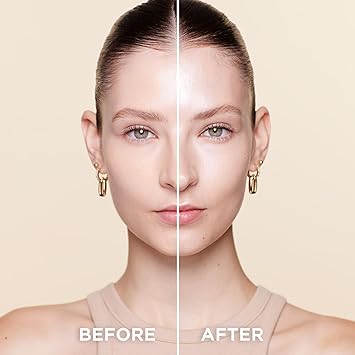
Aging is a natural process, but who says we can’t delay its visual effects? Picking the right moisturizer can be the difference between aging gracefully and showing premature signs of skin aging.
This guide dives deep into the 7 best anti-aging moisturizers that promise to revive your skin’s youthful radiance.
Introduction to Anti-Aging Moisturizers
Anti-aging moisturizers often contain ingredients that help boost collagen production, protect against harmful UV rays, and fight free radicals. But with the multitude of options available, finding the right one can be daunting. Worry not, for we’ve got you covered.
Top 7 Picks
Important Note: “Everyone’s skin is unique. Always perform a patch test before trying a new product to ensure it doesn’t cause irritation.”
1. RejuvenateMe Luxe Cream
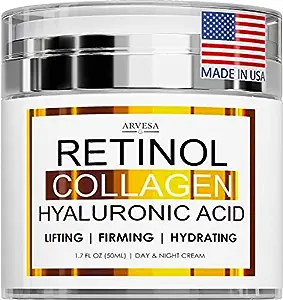
- Key Ingredients: Retinol, Hyaluronic Acid, Vitamin E
- Pros: Quick absorption, non-greasy, suitable for all skin types.
- Cons: Higher price range.
2. Glow & Beyond Ageless Lotion

- Key Ingredients: Peptides, Ceramides, SPF 30
- Pros: Dual protection (moisturizing and sun protection), no parabens.
- Cons: Might feel heavy on oily skin.
3. Natura Youth Preserve
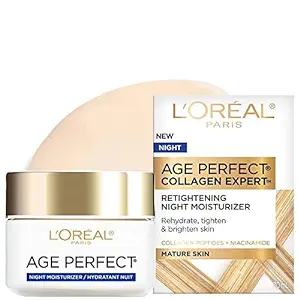
- Key Ingredients: Green Tea Extract, Jojoba Oil, Collagen
- Pros: 100% organic, gentle on sensitive skin.
- Cons: Fragrance might not appeal to everyone.
4. Eternal Radiance Night Cream

- Key Ingredients: Niacinamide, Shea Butter, Retinol
- Pros: Intensive overnight repair, brightens dark spots.
- Cons: Not recommended for daytime use without sunscreen.
5. AgeDefy Daily Serum
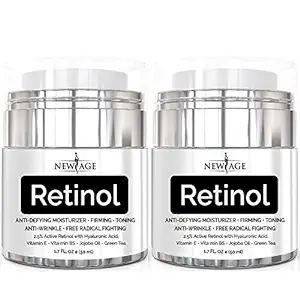
- Key Ingredients: Vitamin C, Hyaluronic Acid, Antioxidants
- Pros: Lightweight, boosts hydration, evens skin tone.
- Cons: Ensure storing in a cool, dark place to retain potency.
6. Organic Touch Renewal Gel
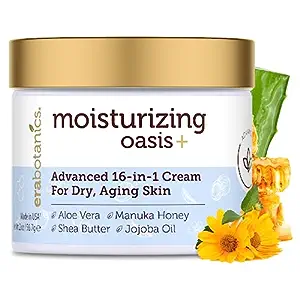
- Key Ingredients: Aloe Vera, Witch Hazel, Rosehip Oil
- Pros: Soothing formula, excellent for post-sun exposure.
- Cons: Gel texture might not be moisturizing enough for extremely dry skin.
7. SunGuard Age-Block SPF50
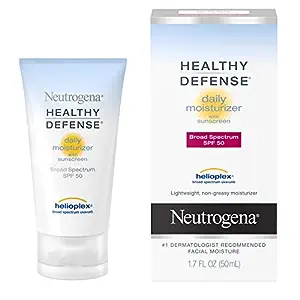
- Key Ingredients: Zinc Oxide, Chamomile, Vitamin E
- Pros: High SPF, protects against UVA/UVB, moisturizes.
- Cons: Needs reapplication every 2 hours if exposed to the sun.
Things to Consider Before Buying
- Skin Type: Know your skin type. For instance, those with oily skin might prefer water-based formulas, while those with dry skin may lean towards oil-based creams.
- Ingredients: Always scan the ingredient list. If you’re allergic or sensitive to a particular component, it’s essential to be aware.
- SPF: If your moisturizer doesn’t contain SPF, remember to apply sunscreen separately. Protecting your skin from the sun is a top anti-aging strategy.
- Price: Expensive doesn’t always mean better. Sometimes, affordable products work just as effectively.
FAQs
1. What is an anti-aging moisturizer?
An anti-aging moisturizer is a skincare product designed to hydrate the skin and address signs of aging, such as fine lines, wrinkles, and loss of elasticity.
2. How do anti-aging moisturizers work?
These moisturizers often contain ingredients like retinol, peptides, hyaluronic acid, and antioxidants that promote collagen production, hydrate the skin, and combat free radicals, thereby reducing the appearance of aging.
3. At what age should I start using an anti-aging moisturizer?
It’s generally recommended to start using anti-aging products in your late 20s or early 30s. However, prevention is key, so using sunscreen and maintaining proper skincare from a younger age can help delay the signs of aging.
4. Can I use an anti-aging moisturizer if I have sensitive skin?
Yes, but it’s crucial to choose a product formulated for sensitive skin. Always perform a patch test before using any new product to ensure it doesn’t cause irritation.
5. Are there natural ingredients in anti-aging moisturizers?
Yes, many anti-aging moisturizers contain natural ingredients like green tea extract, aloe vera, jojoba oil, and rosehip oil, which offer various anti-aging benefits.
6. How often should I apply an anti-aging moisturizer?
Most anti-aging moisturizers are designed for daily use, typically applied once in the morning and once at night. However, always follow the specific usage instructions on the product’s label.
7. Can I use anti-aging moisturizers along with other skincare products?
Yes, you can incorporate an anti-aging moisturizer into your existing skincare routine. It’s recommended to layer products from the thinnest to the thickest consistency.
8. Do anti-aging moisturizers also provide sun protection?
Some anti-aging moisturizers include SPF to protect against harmful UV rays, which are a significant cause of premature aging. If your moisturizer doesn’t contain SPF, it’s essential to apply a separate sunscreen.
9. How long will it take to see results from using an anti-aging moisturizer?
Visible results can vary depending on the individual and the product’s active ingredients. On average, consistent use over 4-8 weeks may show noticeable improvements.
10. Are there any side effects of using anti-aging moisturizers?
Some individuals may experience mild irritation, redness, or breakouts, especially when introducing a new product. It’s essential to read the product’s ingredients and ensure you’re not allergic to any components.
Conclusion
Choosing the right anti-aging moisturizer can be a game-changer for your skincare routine. While all the options listed above are top-notch, the best moisturizer for you boils down to personal preference, skin type, and specific skin concerns. Stay consistent with your skincare, protect your skin from the sun, and embrace the beauty of aging gracefully!






